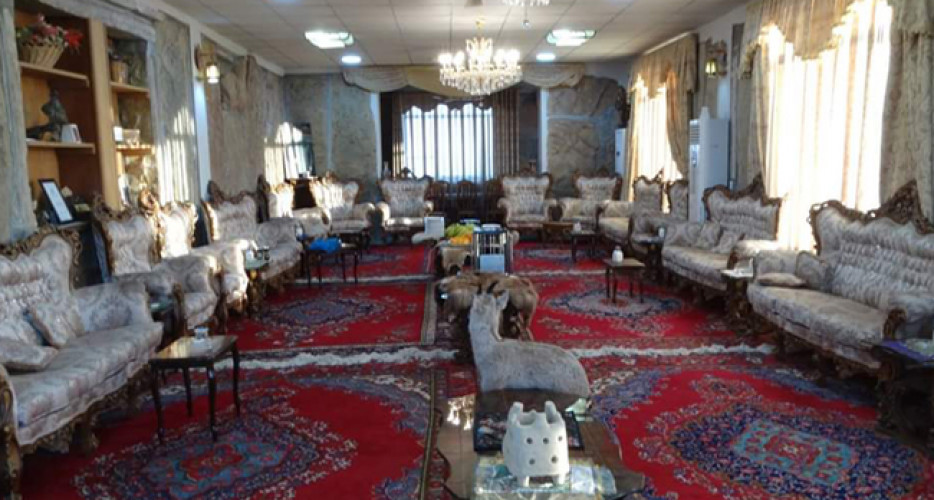
Peregraf- Ammar Aziz
Azad Sa'dullah’s brother and sister were killed in a crash in September 2021, when a truck hit their car near Kalak in Erbil governorate as they traveled to a doctor’s appointment. Four other people died in the crash. Under the laws of the Kurdistan Region, the truck driver could be sentenced to between seven and 20 years in prison and a fine of between 1 million and 7 million Iraqi dinars ($764 and $5,347) because more than one person was killed.
Sa'dullah sat in court watching the criminal prosecution play out, but the situation has already been resolved even before the judge even rendered their verdict.
Like many people in the Kurdistan Region, his family had resorted to tribal arbitration in order to resolve the issue, rather than relying on the criminal justice system.
Sa'dullah, whose family is from Dulejan village in Bardarash district of Duhok governorate, told Peregraf that the driver accepted the offer his family made during the extrajudicial process and that the driver was forgiven.
"We said we didn't want anything from him because the accident was God's destiny," he said.
As a result, there was no need for the court case to continue and ended during the hearing attended by Sa'dullah.
According to an investigation by Peregraf, there are dozens of similar cases in Duhok governorate, where potential criminal prosecutions never end up going to court because they are settled through tribal arbitration. The practice is common across the Kurdistan Region and is usually much quicker than the criminal justice system.
Reza Zuber, a Zebari tribal representative in Akre district, told Peregraf that thousands of resolutions have been reached through this process.
"There is no day that we do not solve five to ten problems," Zuber said. "Wherever there are good men to solve problems, we congratulate them."
There is significant political and social buy-in for tribal arbitration, with local political parties even supporting and helping to facilitate the process. It is frequently used if the opposing sides in a lawsuit or criminal proceeding are from different tribes.
"In Duhok province, the level of tribalism is very strong and, at the same time, all political parties pay great attention to the tribal chiefs of [the Kurdistan] Region, in order to get the votes of citizens during voting. Therefore, they accept them playing the role of a court." Shvan Fathy, a lawyer who works in Semel and Duhok, told Peregraf.
Fathy explained that people think that tribal arbitration will resolve their problems "faster and without headaches," but that it also reduces the influence of rule of law under the state.
Many people say they use tribal processes because they feel that the law in the Kurdistan Region does not apply to everyone equally and that there are bureaucratic hurdles to achieving a resolution.
"One of the reasons why people go to the ‘diwan-khane’ instead of court is the crowded court schedule and delays in decision-making, in addition to the lack of a legal culture," he said, using a traditional term for a room where tribal decisions are made.
In response to the criticism, officials argue that tribal arbitration represents a "good duty" and can complement judicial ruling.
Duhok Police Spokesperson Hemn Sleman told Peregraf that "everyone must cooperate in solving problems: the relatives of the victims, the headman, and tribal chiefs and representatives. At the same time, we will do our job according to the law. If they cooperate with us, that is good."
Sleman argued that tribal arbitration is "a good motivation for resolving problems," adding that "often a tribe chief convinces a suspect to surrender to the police."
In some tribal arbitrations, especially murder cases, the process ends with the payment of blood money to the victim’s family, which is meant to prevent further hostilities and revenge killings. However, it is not successful in all cases.
"There are two types of problems: ones that must be solved by the government and others that will be solved through us. [The latter] includes crossing village boundaries, murder, kidnapping of women, and blood problems," Zuber said.
"If the issues are resolved through the law, both sides may not talk to each other or one side may feel betrayed," he added.
The Zebari tribal representative explained that tribal arbitrators usually do not involve issues of inheritance and property, leaving those cases to the official court system.
"There have been hundreds of problems that the government has not solved, but we have solved them. We will never get involved in anyone's problems, but people themselves ask us for help. I will solve the problems as a father," Zuber said.
However, concerns about rule of law are real, with critics of tribal arbitration saying that equality under the law is better guaranteed in state courts.
"It is better to resolve issues in court and resort to the law because through the law everyone gets their rights, the guilty get their punishment, and the victims will be compensated according to the law," Fathy said.